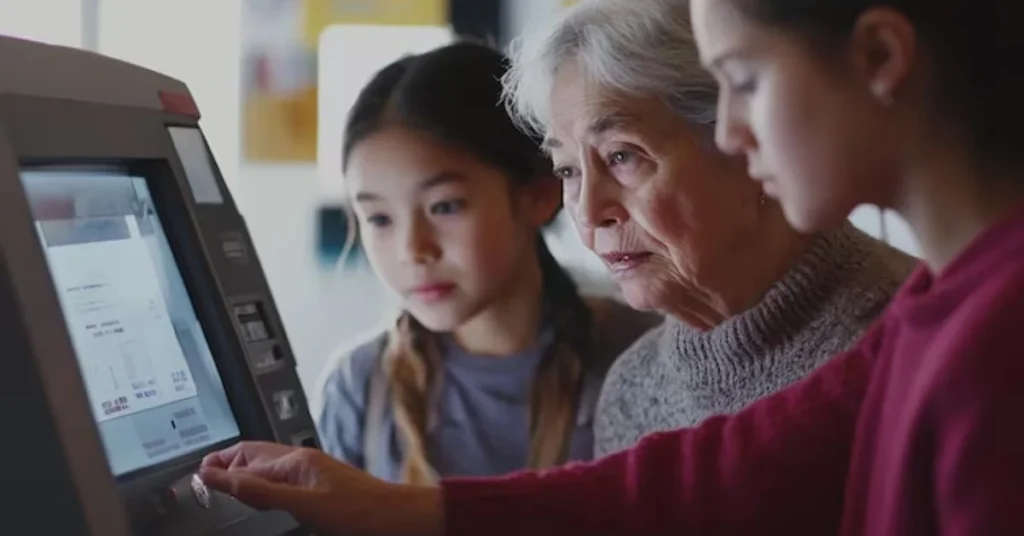Education plays a vital role in shaping the future of children. Both China and the UK have well-established systems, but their approaches can be quite different, especially when you look at how they educate children at various stages. Let’s take a deep dive into the Chinese and British education systems and see how they compare across different age groups.
Must read Healthcare Education Recruiters
Understanding Chinese and British Education System for Different Age
The Chinese education system is known for its rigor and discipline. It is divided into several stages:
- Preschool (Ages 3-6)
Preschool education in China focuses on social skills, creativity, and motor development. Children are not introduced to academic subjects like math or reading until they enter primary school. Play-based learning is encouraged, but even at this age, there is an emphasis on discipline and respect for teachers. - Primary School (Ages 6-12)
Chinese children start primary school at the age of 6. The curriculum is intensive, with subjects like Chinese, math, and moral education forming the core. English language learning begins in the third grade. Children have long school hours and lots of homework, but the goal is to build a strong foundation in core subjects. - Middle School (Ages 12-15)
This stage marks a shift to more serious academic work. Subjects become more specialized, and the pressure to perform well in exams increases. The Chinese middle school curriculum includes science, history, and geography, alongside the core subjects. - High School (Ages 15-18)
High school in China is extremely competitive. Students prepare for the Gaokao, the national college entrance exam, which determines their future education and career path. High school students typically study for long hours, often attending extra classes outside school to improve their chances of scoring well. - Higher Education (Ages 18+)
Only the top performers in the Gaokao gain admission to China’s prestigious universities. Higher education is focused on specialization, and students are expected to work hard to meet the high standards of these institutions.

British Education System Overview
The British education system is more diverse and flexible compared to China’s. It is divided into:
- Early Years (Ages 3-5)
In the UK, children start their education in the early years, which includes nursery and reception classes. The focus is on play-based learning, personal development, and basic literacy and numeracy skills. - Primary School (Ages 5-11)
Primary education in the UK is split into two stages: Key Stage 1 (ages 5-7) and Key Stage 2 (ages 7-11). Children study core subjects like English, math, and science, alongside creative arts, physical education, and social studies. There is less emphasis on exams and more on continuous assessment, but formal testing (SATs) is introduced in Key Stage 2. - Secondary School (Ages 11-16)
Secondary education in the UK covers Key Stage 3 (ages 11-14) and Key Stage 4 (ages 14-16). At age 16, students take their General Certificate of Secondary Education (GCSE) exams. Students choose subjects they want to specialize in, but core subjects like English, math, and science are mandatory. - Sixth Form (Ages 16-18)
After GCSEs, students can continue into Sixth Form, where they take A-levels or BTECs in preparation for university. A-levels are subject-specific exams, while BTECs are more vocational. This period allows for more focus on personal interests and academic strengths. - Higher Education (Ages 18+)
Students in the UK can attend university if they meet the required grades from their A-levels. Unlike China’s centralized Gaokao, British students apply to universities through the UCAS system, where they receive conditional offers based on predicted grades.

Key Chinese and British Education System for Different Age
Structure and Curriculum
In China, the education system is highly centralized, and there is a strong emphasis on core academic subjects like math and science. The UK, on the other hand, offers a more balanced curriculum that includes arts and humanities alongside the sciences.
Testing and Exams
Chinese and British Education System for Different Age face high-stakes exams at every stage of their education, culminating in the Gaokao. In contrast, the UK uses continuous assessment along with standardized exams like GCSEs and A-levels, but these are spread out more evenly.
Teaching Methods
Chinese classrooms are traditionally teacher-centered, with students expected to listen and memorize. In the UK, there is more emphasis on interactive learning, critical thinking, and creativity.
School Hours and Homework
Chinese students often spend more time in school and on homework compared to their British counterparts. UK students typically have a shorter school day and less homework, although this varies by school.
Extracurricular Activities
In the UK, extracurricular activities are considered an essential part of education, helping to develop well-rounded individuals. Chinese schools offer fewer extracurricular opportunities, with the focus primarily on academics.
Impact of Cultural Differences on Education
Culture plays a significant role in shaping the education systems of both countries. In China, education is seen as a collective responsibility, with parents, teachers, and students all striving for excellence. This cultural mindset leads to a focus on discipline, hard work, and respect for authority in schools.
In the UK, there is more emphasis on individuality, personal development, and creativity. British schools encourage students to think independently and express their opinions, fostering a more relaxed learning environment.
How Students Are Assessed in China and the UK
In China, students’ academic success is largely determined by exams. Performance in the Gaokao can dictate a student’s future prospects, leading to intense competition and pressure. On the other hand, UK students are assessed through a combination of coursework, exams, and teacher evaluations. This allows for a more holistic view of student achievement.
Transition from School to Higher Education
The transition from school to university is a key milestone in both systems. In China, students must excel in the Gaokao to attend prestigious universities. In the UK, students use A-level results or vocational qualifications to apply for university. While both the Chinese and British Education System for Different Age aim to prepare students for higher education, the process in the UK is generally seen as less stressful due to its focus on multiple pathways and continuous assessment.

Conclusion Chinese and British Education System for Different Age
The Chinese and British Education System for Different Age offer unique approaches to learning, each with its strengths and challenges. While China focuses on rigorous academic performance and discipline, the UK encourages creativity, critical thinking, and a well-rounded education. Understanding these differences helps us appreciate how various cultural values shape the way children are educated. Both systems aim to prepare students for success, but they take very different paths to achieve that goal.
For further reading, Visit here.
This comprehensive guide highlights the differences and similarities between Chinese and British Education System for Different Age, helping parents, educators, and students understand which system might suit their needs better.
At what age do children start school in China and the UK?
In China, children start primary school at age 6, while in the UK, they typically begin primary education at age 5.
What is the Gaokao, and how is it different from the A-levels?
The Gaokao is China’s national college entrance exam, while A-levels in the UK are subject-specific exams taken at age 18. The Gaokao is a one-time, high-stakes exam, whereas A-levels allow for more subject choice and continuous assessment.
Are there more extracurricular activities in British schools compared to Chinese schools?
Yes, British schools generally offer more extracurricular activities than Chinese schools, which tend to focus more on academics.
How is homework different in China and the UK?
Chinese students typically have more homework than their British counterparts. The workload in China is designed to reinforce learning and prepare students for exams, while the UK uses homework as part of continuous assessment.
Which education system is more stressful for students?
The Chinese education system is often seen as more stressful due to its exam-driven structure and long study hours. The UK system, while still demanding, spreads out assessments more evenly and offers a broader range of subject choices.











